The New “Paging Dr. Google?” DTC-AI for Health Care
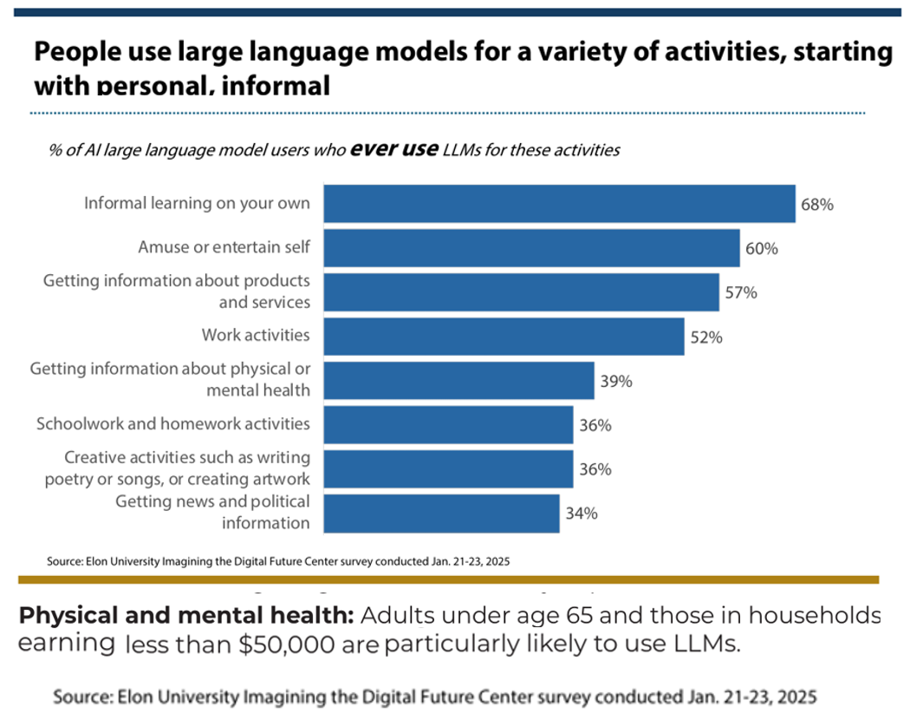
While most people in the U.S. who have used large language models (like ChatGPT) for informal learning, entertainment, and getting information about products and services, 39% of U.S. adults have also tapped into LLMs to source information about physical or mental health. This insight is brought to us in the brilliantly titled report, Close encounters of the AI kind, from the Imagining the Digital Future Center at Elon University. The principle author of the survey report is the Center’s Director, Lee Rainie, whose name many of you will know from his two+ decade career at the Pew Research Center (and
Ethics for AI in Health – A View From The World Health Organization
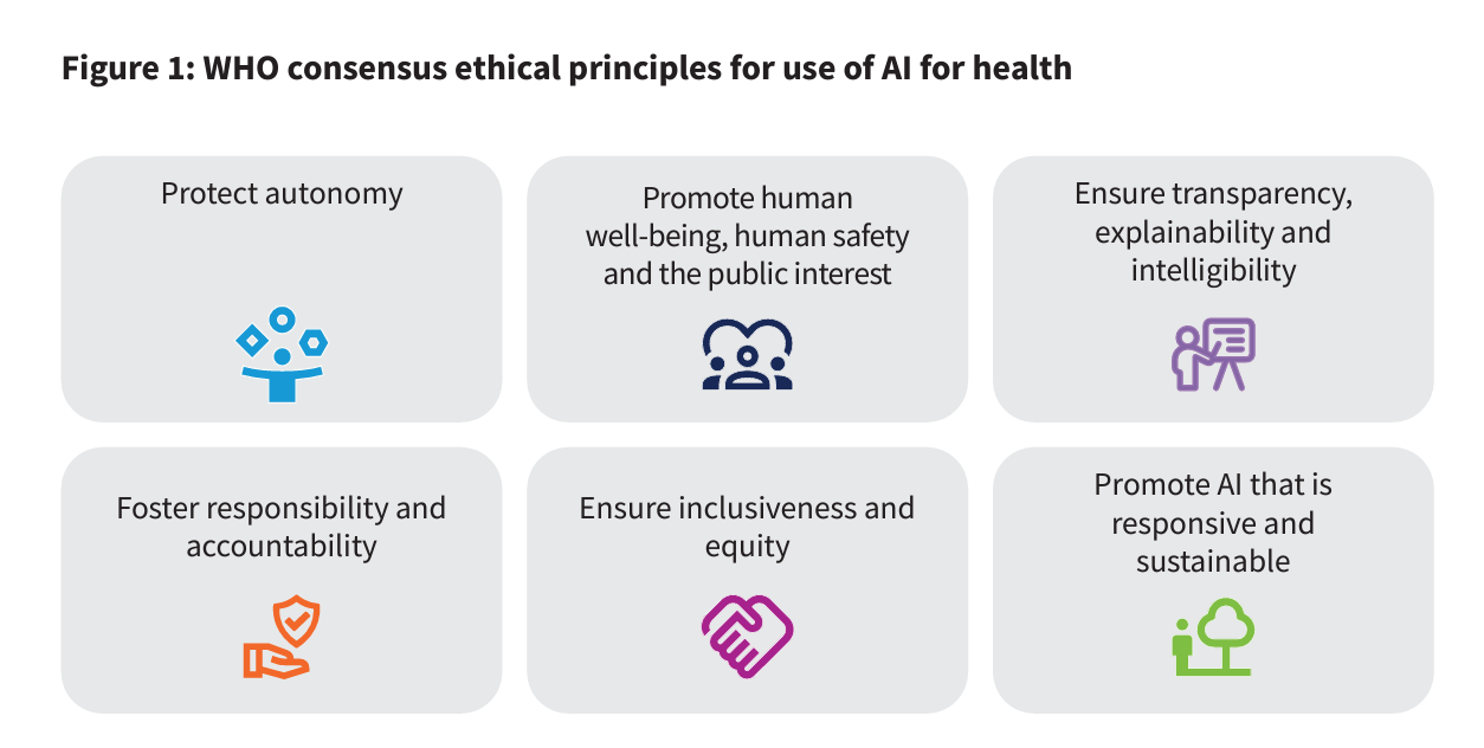
For health care, AI can benefit diagnosis and clinical care, address paperwork and bureaucratic duplication and waste, accelerate scientific research, and personalize health care direct-to-patients and -caregivers. On the downside, risks of AI in health care can involve incomplete or false diagnoses, inaccuracies and errors in cleaning up paperwork, exacerbate differential access to scientific knowledge, and exacerbate health disparities, explained in the World Health Organization’s (WHO) report, Ethics and governance of artificial intelligence for health. WHO has released guidance on the use of large multi-modal models (LMMs) in health care which detail 40+ recommendations for
From Managing Healthcare Providers’ Costs to “Revolutionizing” Care – Bain Looks at the Short- and Long-Term for Generative AI

“Generative AI already has the power to alleviate some of providers’ biggest woes, which include rising costs and high inflation, clinician shortages, and physician burnout,” Bain & Company observe in Beyond Hype: Getting the Most Out of Generative AI in Healthcare Today. By the end of this paper, the Bain team expects that those health care leaders who are investing in generative AI today (to start small, to win big in the report’s words) will learn key lessons that will put them “on a path to eventually revolutionize their businesses.” Bain & Company surveyed U.S. health system leaders to gauge their
“Your care, your way:” Learning from the Philips Future Health Index 2023
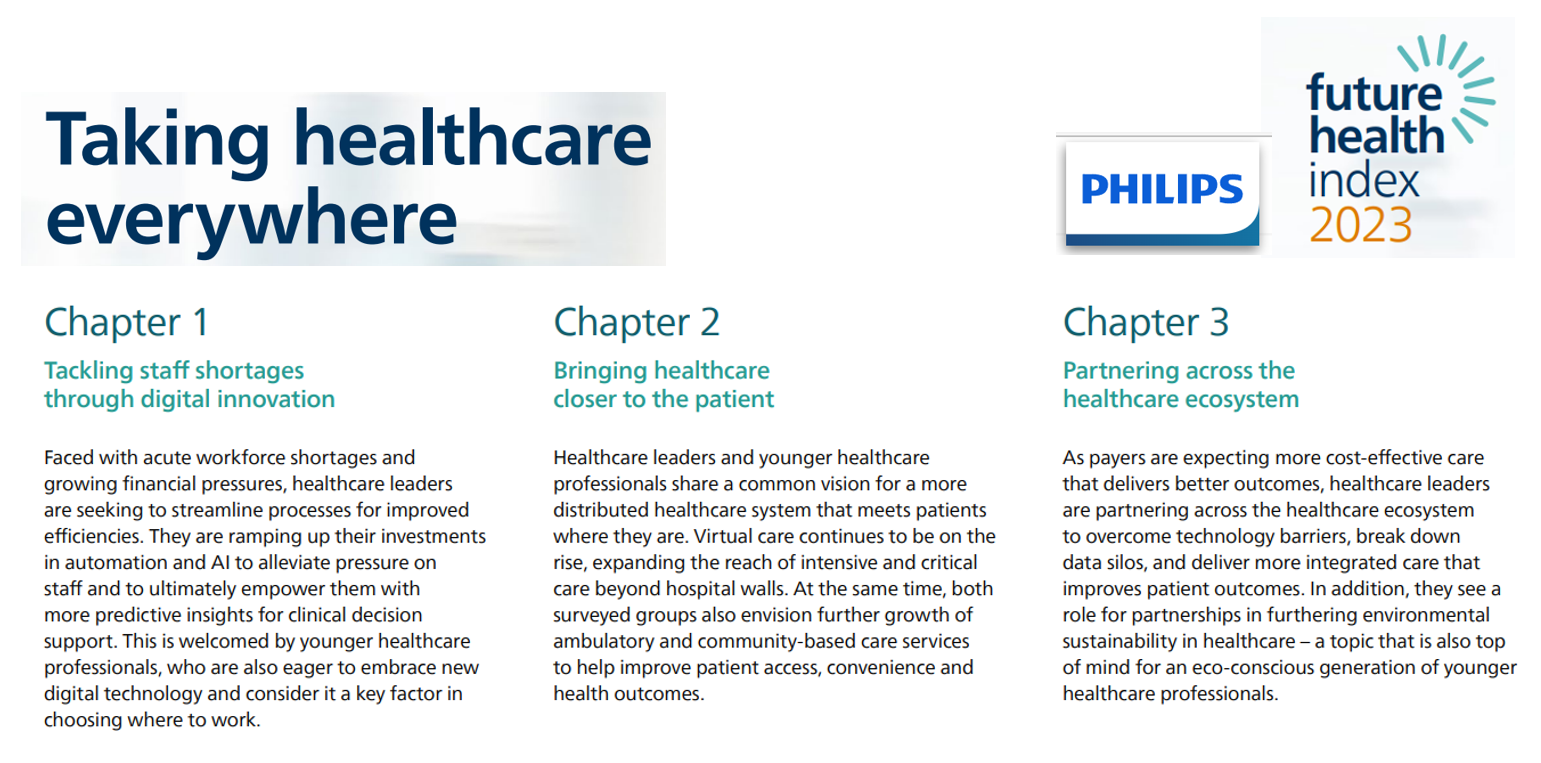
Consider the key drivers of supply and demand in health care, globally, right now: On the medical delivery supply side, the shortage of staff is a limiting factor to continuing to deliver care based on the usual work-flows and payment models. On the demand side, patients are taking on more demanding roles as consumers with high expectations for service, convenience, and safe care delivered closer to home — or at home. This dynamic informs The Future Health Index 2023 report from Philips, launched this week at HIMSS 2023. This is the eighth annual global FHI report, with detailed country-specific analyses to
Patients Have AI-Disconnect When it Comes to Their Health Care – Pew Research Center Insights
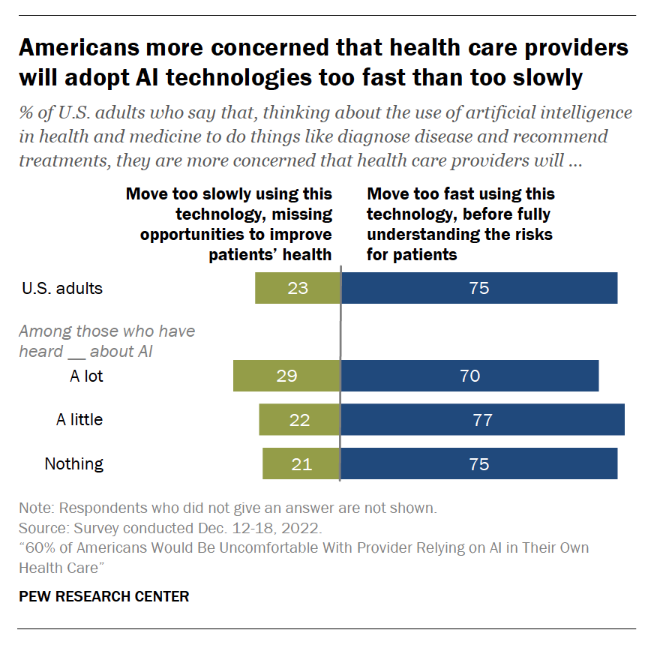
Most U.S. health citizens think AI is being adopted in American health care too quickly, feeling “significant discomfort…with the idea of AI being used in their own health care,” according to consumer studies from the Pew Research Center. The top-line is that 60% of Americans would be uncomfortable with [their health] provider relying on AI in their own care, found in a consumer poll fielded in December 2022 among over11,000 U.S. adults. Most consumers who are aware of common uses of AI know about wearable fitness trackers that can analyze exercise and sleep
Hacking Health Care, Your Top Health-Tech Summer Read
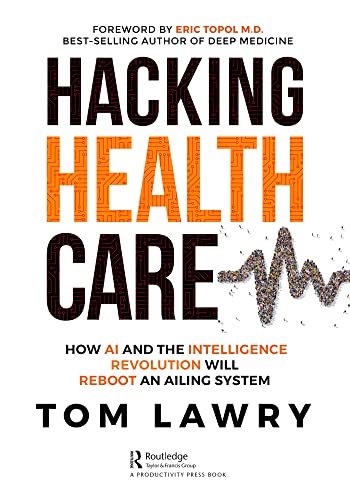
“Tom Lawry reminds us that the health care industry can shift from glacial to warp speed when it needs to. Given the right tools, we can evolve from health systems to systems of health, baked with Responsible Intelligence to do good while embedded with respect, inclusion, and transparency. Health citizens deserve Tom’s vision to emerge,” I wrote in a quote on the back of Tom’s new book, Hacking Health Care: How AI and the Intelligence Revolution Will Reboot an Ailing System. Tom knows whereof he speaks and writes and opines: he has
Techquity: How Technology Can Help to Scale Health and Digital Equity, Live from VIVE 2022
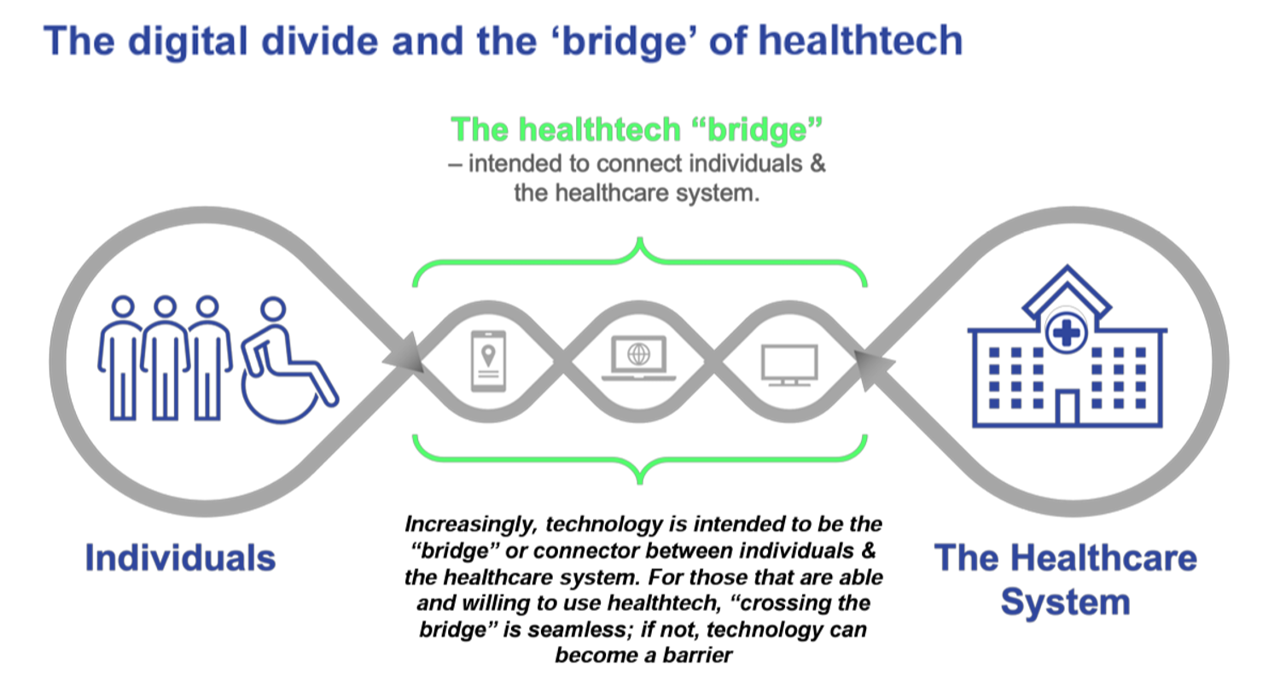
The COVID-19 pandemic revealed long-systemic health disparities in the U.S. and in other parts of the world. Income inequality, sickly environments in homes and communities (think unclean air and water), lack of public transportation and nutritious food deserts combine to limit peoples’ health and well-being., Beyond the traditional social determinants of health, such as these, we’ve called out another health risk that became crucial for life in the coronavirus pandemic era: digital connectivity, Indeed, WiFi and broadband represent the newest social determinant of health to add to a growing list of risk factors that challenge health citizens’ health. Kudos to
Healthcare Via the Cloud, Across the Enterprise and in the Patient’s Home – a Sustainable View from Philips at HIMSS 2021

The COVID-19 pandemic sparked a reappraisal of value-based care, a shift to remote and virtual care, and acceleration of healthcare stakeholders’ investments in Artificial Intelligence-based solutions, Philips discovered in the 2021 Future Health Index, the company’s latest survey conducted among 2,800 health care leaders working in 14 countries. This week at the 2021 annual HIMSS conference, Philips is “making the case for moving to the cloud,” discussing the Philips HealthSuite, a cloud-based platform for connecting providers and patients, devices (and the data they generate), and care across the health care continuum. That’s a big promise and vision, so to kick
The Pandemic Accelerated Consumers’ Digital Health Tech Ownership As Big Tech Morphs To Big Health
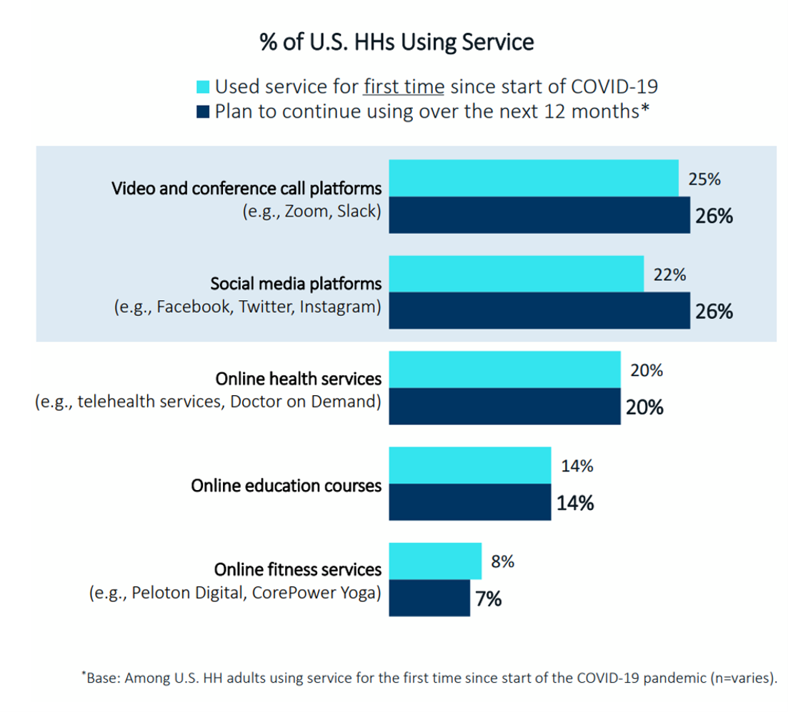
The pandemic ushered in millions of peoples’ first digital health experiences, many of which will persist according to the 23rd Annual U.S. Consumer Technology Ownership & Market Potential Study, published by the Consumer Technology Association. CTA conducted an online survey among 2,409 U.S. adult 18 and over in April 2021 to gather data for this annual report. To ensure a fair sample, CTA drew three datasets for the general population along with an Hispanic oversample and an oversample for people 65 years of age and older. The study looked at 83 consumer technology products and sub-categories, including many directly related
Nurses Hacking for Health and Compassionomics
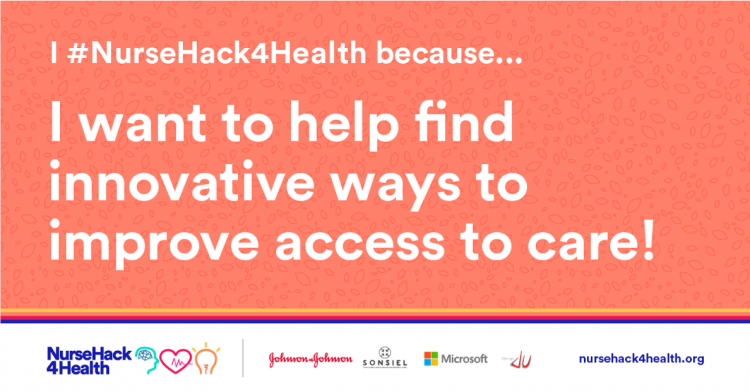
The hearts and minds of nurses are fertile and inspirational sources and engines for health care innovation. This past weekend, and for the second time, I had the privilege and opportunity to be a panelist for the perennial hackathon meet-up of Nurse Hack 4 Health, sponsored by Microsoft, Johnson & Johnson, Sonsiel, and DevUp. This round, the hackathon attracted hundreds of nurses from at least 20 countries and 30 U.S. states. Even a few students attended, a growing trend as academia recognizes the shortage of workers trained to solve thorny problems of the world. In health care, right here, right
Trust-Busted: The Decline of Trust in Technology and What It Means for Health
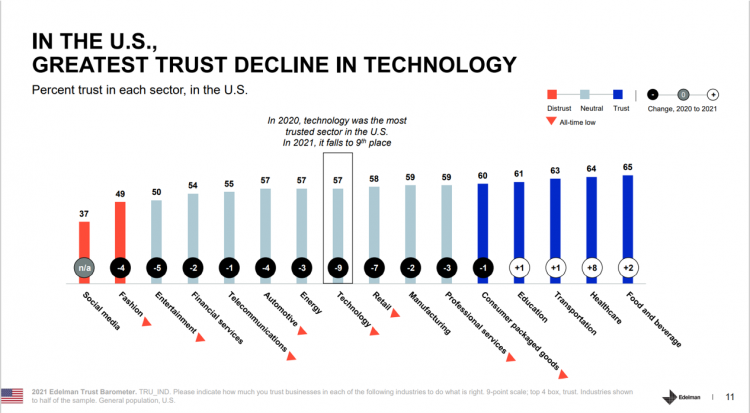
Trust in the technology industry has crashed to an all-time low based on the 2021 Edelman Trust Barometer. As Richard Edelman, CEO, concisely asserted, “Tech loses its halo.” The first chart shows the one-year trend on trust across industries through U.S. consumers’ eyes. Most industries lost citizens’ trust between 2020 and 2021, most notably, Technology, dropping the greatest margin at 9 points Retail, falling 7 points, Entertainment. falling 5 points, and, Fashion and automotive declining by 4 points. Several sectors’ trust equity rose in the year, especially healthcare growing by 8 points and food and beverage rose slightly by 2
The Patient Safety Issue of Racial Disparities and the Opportunity for “Health Equity By Design”
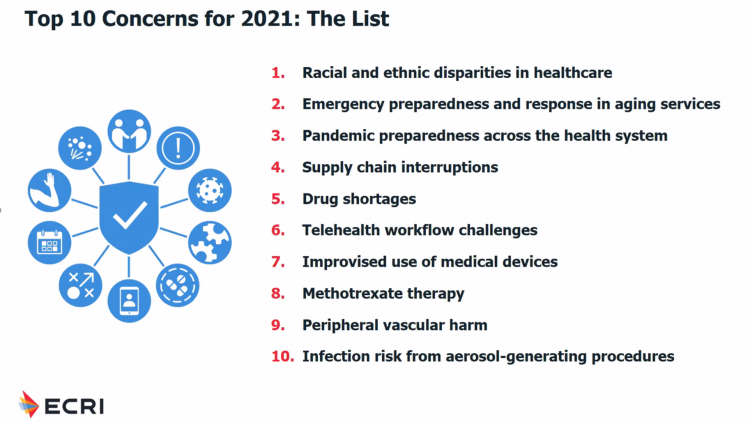
In 2021, racial and ethnic disparities in healthcare are a top patient safety issue, according to ECRI’s annual list of major concerns facing healthcare consumers’ risks to adverse events that can harm them. ECRI has published their annual Top 10 list since 2018, when the list featured diagnostic errors, o behavioral health needs in acute care settings, and patient engagement and health literacy — all of which play into this year’s #1 issue, racial and ethnic disparities in health care. In fact, among the risks in this year’s Top Ten list, eight were accelerated and highlighted by the COVID-19 pandemic
Ten Forces Shaping Health Care in 2021: A View from CVS Health
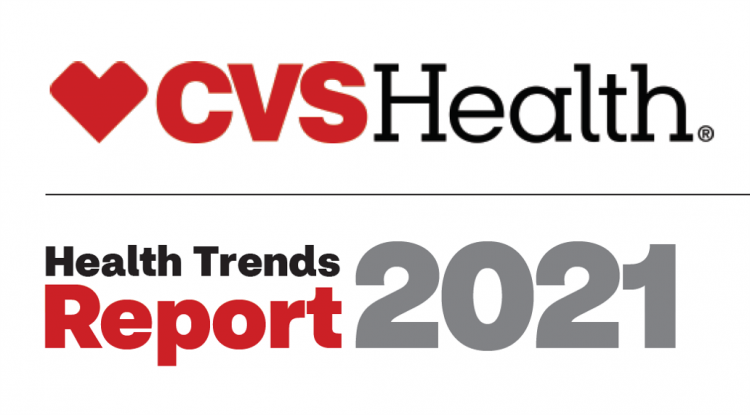
Expanding omni-channel, data-driven, cost-effective health care in the community, tailoring that care, and attending to mental health paint the picture of health through the lens of CVS Health. The company published the Health Trends Report 2021 today, calling out ten forces shaping health care this year. Those themes are, The Year of the Pharmacist The Next Step Forward in Cardiac Care Cancer Needs a Better Roadmap The EHR Hits Its Stride The Mental Health Shadow of COVID-19 Tailor Care to the Older Patient More Agents that Predict Disease Paying for the New Medical Miracle Virtual Care Goes Mainstream, and Diabetes
The Digital Transformation of Patients – Update from Rock Health and Stanford
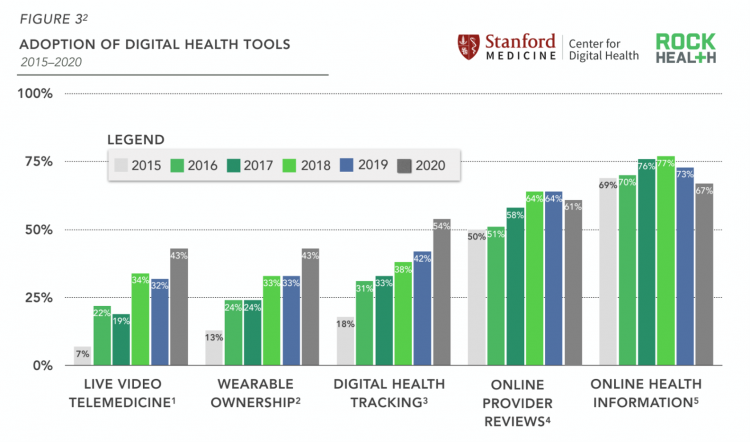
The coronavirus pandemic accelerated digital transformation of organizations, including health care providers. But another patient side-effect of COVID-19 has been the digital transformation of many patients, documented by data gathered by Rock Health and Stanford Center for Digital Health and analyzed in their latest report explaining how the public health crisis accelerated digital health “beyond its years,” noted in the title of the report. Rock Health and Stanford commissioned an online survey among 7,980 U.S. adults from early September to early October 2020 to gauge peoples’ interest in and utilization of digital health tools and telehealth. Rock Health has conducted a consumer digital
A New Health Literacy Pillar: Personal Data Stewardship
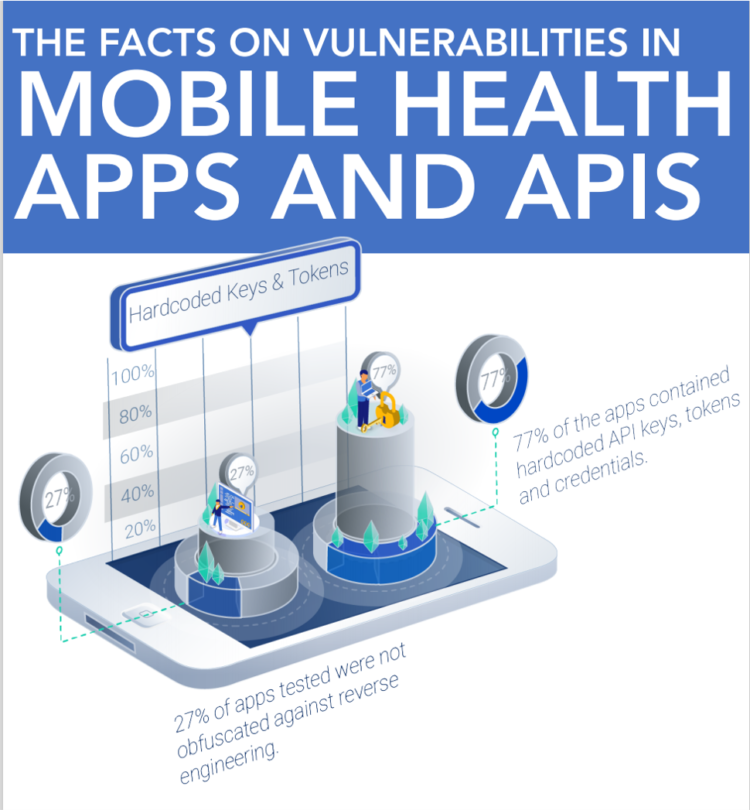
The growing use of APIs in health information technology innovation for patient care has been a boon to speeding development placed in the hands of providers and patients. Using APIs can help drive interoperability and make data “liquid” and useable. APIs can enable “Data liberación,” a concept proposed by Todd Park when he worked in the Obama administration. Without securing patients’ personal health data leveraging APIs, those intimate details are highly hackable explained in All That we Let In, a report from Knight Ink and Appr0ov. It is likely that behind growing health data hacks is the marginally greater financial
Ensuring That Humanity Retains Control of Connected Things: A Message from Microsoft at CES 2021

Artificial intelligence (AI) has begun to play a role in health care for predictive analytics, personalization, and public health. On 26th January, I’ll moderate a tweetchat at 1 pm Eastern time, brainstorming the current and future state of and opportunities for AI in health care. I’ll be co-chatting with Microsoft’s AI leader, Tom Lawry (@TCLawry on Twitter). In advance of that discussion, I wanted to feature remarks shared by Brad Smith, Microsoft President, that I recently heard at CES 2021, the annual (this year, virtual) meeting convening the largest community of consumer electronics stakeholders globally Smith wove a crucial, impactful
Trust Plummets Around the World: The 2021 Edelman Trust Barometer in #CES2021 and Microsoft Context
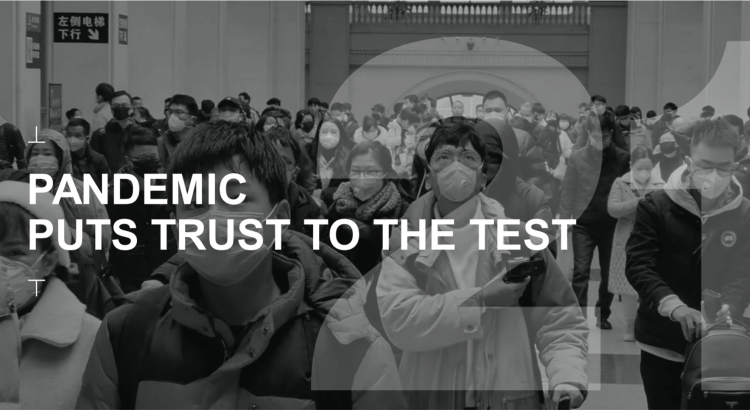
Citizens around the world unite around the concept that Trust is Dead. This is no truer than in the U.S., where trust in every type of organization and expert has plummeted in the wake of the COVID-19 pandemic, political and social strife, and an economic downturn. Welcome to the sobering 2021 Edelman Trust Barometer, released this week as the world’s technology innovators and analysts are convening at CES 2021, and the annual JP Morgan Healthcare meetup virtually convened. As the World Economic Forum succinctly put the situation, “2020 was the year of two equally destructive viruses: the pandemic and the
Data Well-Being: A Pillar of Health Citizenship for US Consumers
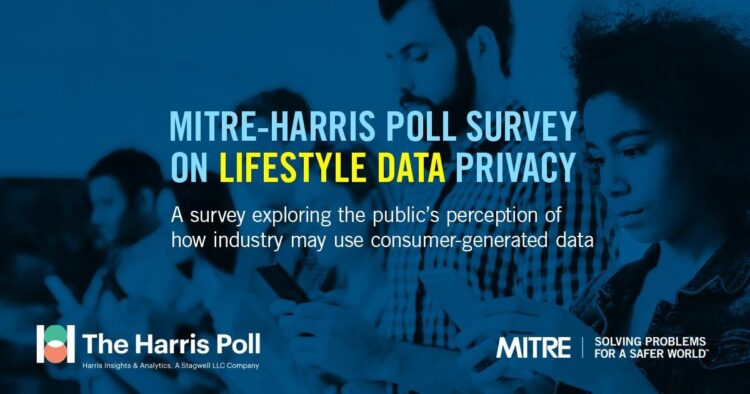
In the COVID-19 era, most U.S. consumers believe they have an obligation to share personal health information to stop the spread of the coronavirus. However, only 44% would be willing to share their personal data with a national database, a MITRE study learned. Only one-third of Americans would be willing to share their temperature, 29% their location, and one-fourth information about their chronic conditions. The Harris Poll conducted the study among 2,065 U.S. adults 18 and over in mid-June 2020 to gauge peoples’ perspectives on health data and privacy. Three-quarters of people in the U.S. believe that data privacy “is a
The Latest Health Technology Vision and Consumer Behavior Insights From Accenture
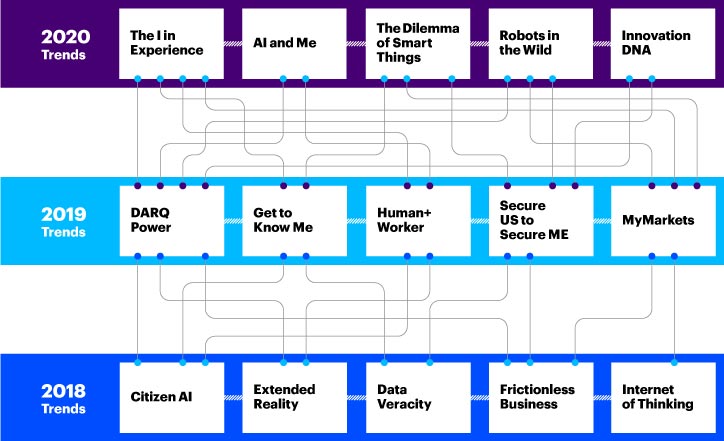
The COVID-19 pandemic hastened digital transformation for both the health care industry and for individuals — as health consumers, patients, caregivers, and health citizens. Two new reports from Accenture update our understanding of the changed health consumer in the context of both “home: and the health care ecosystem. These reports are Accenture’s annual Digital Health Technology Vision 2020, and an analysis of the firm’s Wave 7 of consumer research, answering the question, How will COVID-19 change the consumer? The 2020 tech vision for health is summarized here, tying to Accenture’s previous two years of forecasts. This year, the five pillars
Why CTA’s Shepherding AI Is Important for Re-Imagining Healthcare
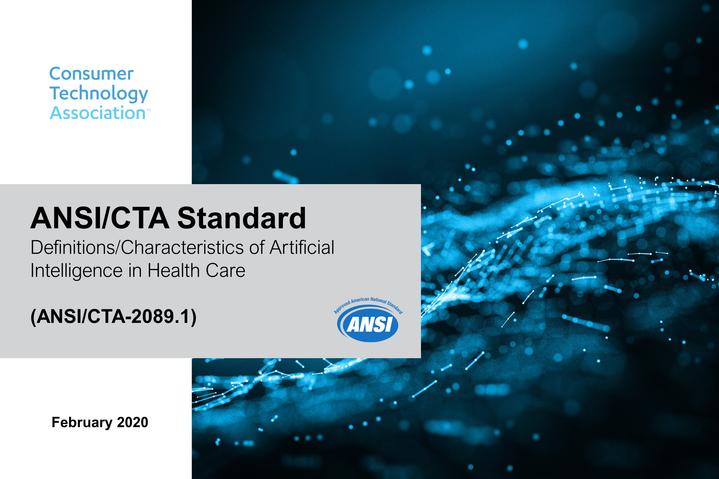
The Consumer Technology Association (CTA), collaborating with industry stakeholders, has ushered in a standard for artificial intelligence in health care. CTA is the membership organization for companies that innovate, manufacture and market consumer-facing tech like big-screen TVs, slick new autos, video games and voice assistants. So what’s an organization like CTA doing with AI and health care? Let me connect the dots. Check out this graphic taken from my book, HealthConsuming: From Health Consumer to Health Citizen. This shows the ten categories of tech I revisit each year at CES, CTA’s annual mega-conference of new-new things in consumer electronics
Dr. Roboto? Stanford Medicine Foresees Digital Doctors “Maturing”
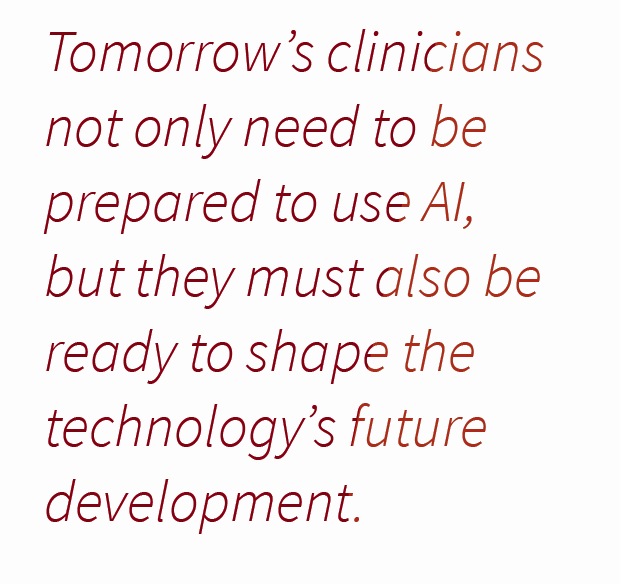
Physicians are evolving as digital doctors, embracing the growing role of data generated in electronic health records as well as through their patients using wearable technologies and mobile health apps downloaded in ubiquitous smartphones, described in The Rise of the Data-Driven Physician, a 2020 Health Trends Report from Stanford Medicine Stanford Medicine interviewed 523 physicians and 210 medical students and residents in September and October 2019 to assess clinicians’ perspectives on digital health topics for this study. The study title citing the “data-driven physician” is based on the key survey finding that doctors are preparing to embrace data, from both traditional
Trust Is the Currency for Consumer Health Engagement – A Bottom-Line at CES 2020
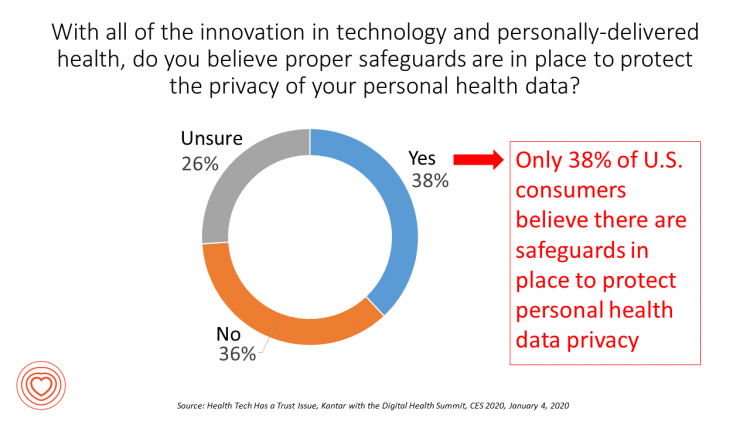
There’s less talk about Bitcoin and cryptocurrency at #CES2020. The most important currency under discussion is Trust. We have begun a consumer electronics migration from the past decade of the Internet of Things to this next decade of the Intelligence of Things. The different “I’s” signal the transition from devices that have connected to the Internet and generated data from our everyday lives, to the next ten years of gathering that data, mashing it up for meaning, and feeding back intelligence to users in the form of advising, coaching, nudging — with potentially powerful feedback loops for health, wellness and
The Internet of Teeth – The Growth of Oral Health at CES 2020
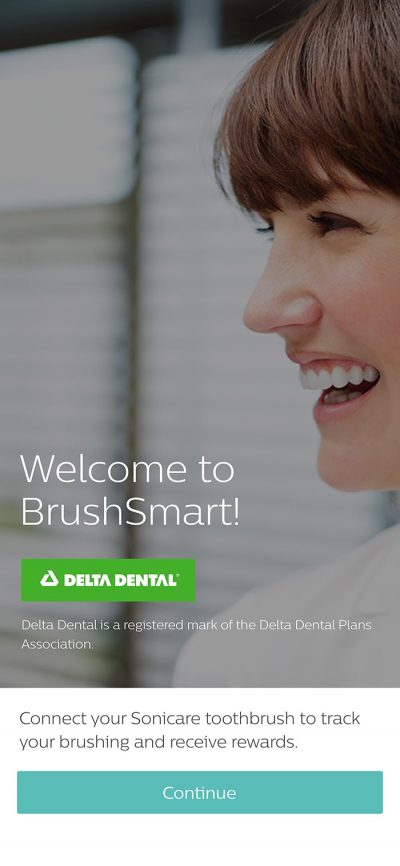
The presence of health and medicine is growing at CES, the annual conference of all-things-tech for consumers. At this week’s Show in Las Vegas, we see that the Internet of Healthy Things (a phrase coined by Dr. Joe Kvedar) has taken hold and gone mainstream in remote health monitoring, wearable tech, and heart rate tracking which is now embedded (and expected by health-seeking consumers) in wristbands. An expanding category in the Internet of Healthy Things is oral care. Let’s call this the Internet of Teeth, yet another riff on “IoT.” Of course, oral health goes well beyond teeth and toothbrushes.
“Digital Health Is An Ecosystem of Ecosystems” – CTA’s 2020 Trends to Watch Into the Data Age
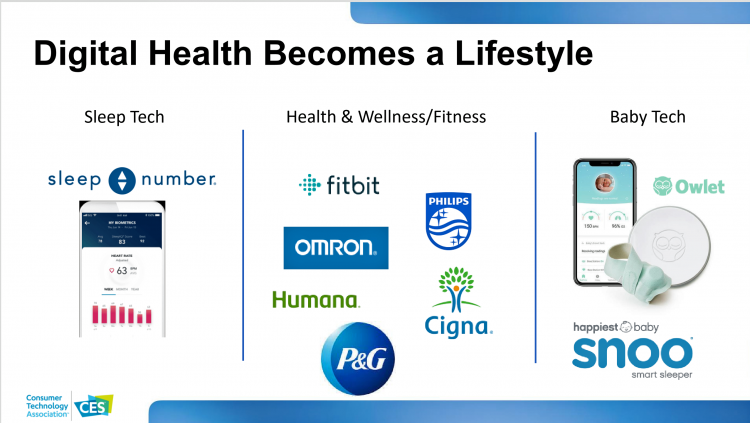
In CTA’s 2020 Consumer Tech Forecast launched yesterday at Media Day 1 at CES, Steve Koenig VP of Research, said that, “digital health is an ecosystem of ecosystems.” Health, medical and wellness trends featured large in the forecast, which brought together key trends for 5G, robotics, voice tech, AR/VR/XR, and the next iteration of IoT — which Steve said will still be called “IoT,” but in this phase will morph into the “Intelligence of Things.” That speaks to Steve’s phrase, “ecosystem of ecosystems,” because that’s not just “digital” health — that’s now the true nature of health/care, and what is
What HealthyThinker Is Thinking About Health at CES 2020
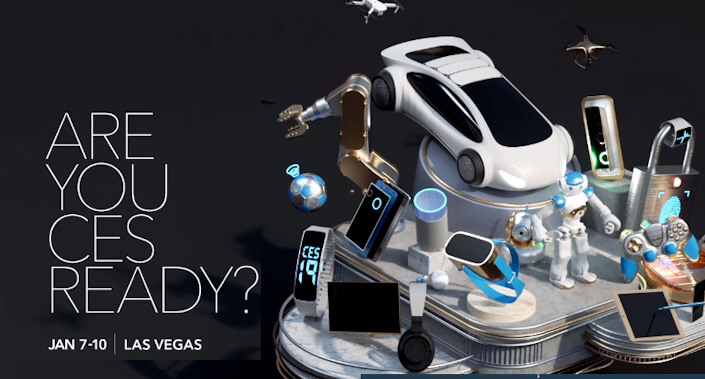
Next week, the Consumer Technology Association (CTA) will convene CES, the Consumer Electronics Show, where over 180,000 tech-minded people from around the world will convene to kick the tires on new TVs, games, smart home devices, 5G connections, 3-D printing, drones, and to be sure, digital health innovations. At #CES2020, exhibitors in the health/care ecosystem will go well beyond wearable devices for tracking steps and heart rate. I’ll be meeting with wearable tech innovators along with consumer electronics companies and retailers. I’ve also scheduled get-togethers with pharma and life science folks, health plan people, and execs from consumer health companies.
Most Health Consumers Expect Technology To Play a Larger Role As Tech-Angst & Privacy Concerns Grow

As technology continues to re-shape consumers’ experiences and expectations with health/care, retail, travel and work, peoples’ concerns about data privacy are also growing as observed by a 2020 consumer trends forecast from GlobalWebIndex, Connecting the dots. First, some overall context to the study. GlobalWebIndex “connects the dots” of consumers trends in 2020 including the topics shown in the first graphic including commerce and retail, gaming, travel, human touch, nostalgia, privacy and digital health — the first of these trends discussed in the report. Note that the data discussed in this post include responses from consumers residing in both the U.S.
Will Technology Cure Americans’ Health Care System Ills? Considering Google and Ascension Health’s Data Deal

“Google’s ‘Project Nightingale’ Gathers Personal Health Data on Millions of Americans,” the Wall Street Journal reported in today’s paper and on the WSJ.com website. The story started with the scenario that, “Search giant is amassing health records from Ascension facilities in 21 states; patients not yet informed.” Here’s Ascension’s press release on the collaboration, described in the title as “healthcare transformation.” Note: this release was written after the Wall Street Journal published this story. And, according to the WSJ reporting, “Neither patients nor doctors have been notified. At least 150 Google employees already have access to much of the data
Making Health Care Better, from the N of 1 to the Public’s Health – Trend-Weaving Medecision Liberation 2019
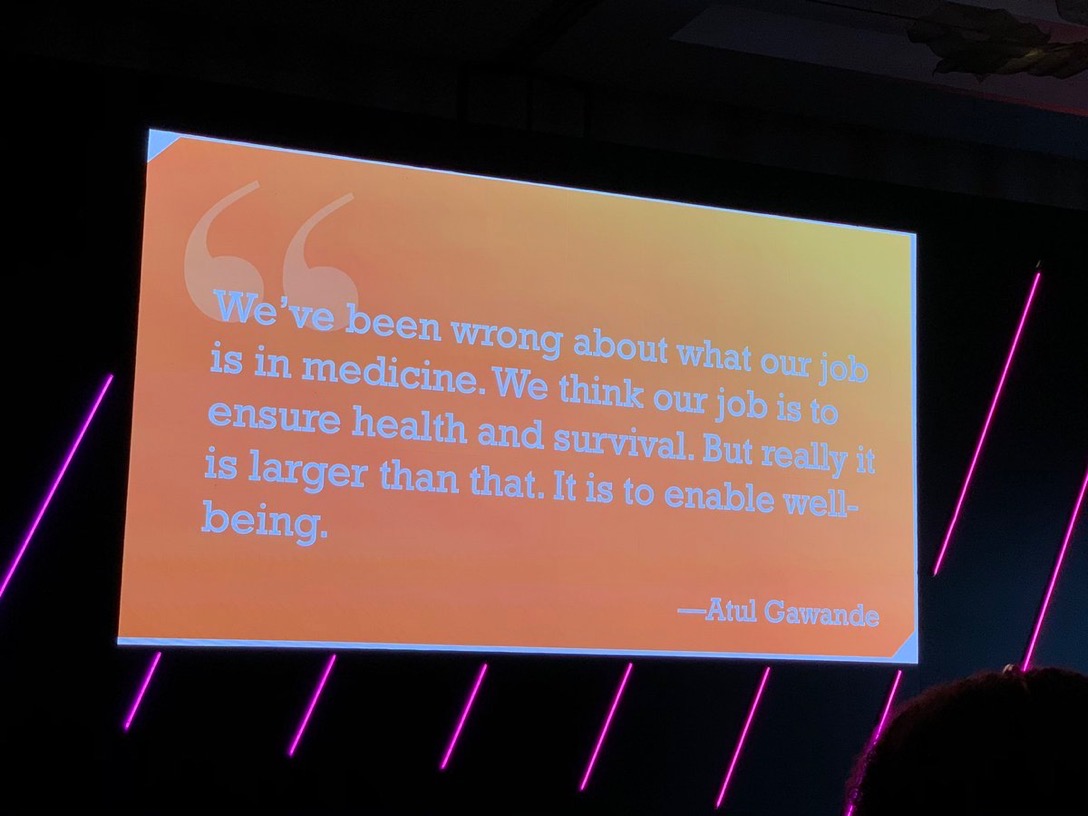
Health and our health information are deeply personal. Changing health care and inspiring positive health behaviors is hard to do. But we must and we will, a group of inspiring and inspired people who work across the health/care ecosystem affirmed this week in Dallas at the conference of Medecision Liberation 2019. I was engaged at this conference to wear several hats — as a keynote speaker, a sort of “emcee,” and, finally, to trend-weave the many talks and discussions happening throughout the meeting. This post is my synthesis of the summary I delivered live at the end of the conference,
Learning from Dr. Eric Topol, Live from Medecision Liberation 2019

“Bold thinking is great. Bold doing is better,” Dr. Eric Topol introduced his talk yesterday at Medecision’s Liberation 2019 conference. I have the opportunity, for which I’m so grateful, of not only attending this meeting but playing a role as a speaker, a sometimes stage “emcee,” and a keynote speaker. And as an attendee, I learn so much from other speakers, fellow attendees, and Medecision staff all sharing perspectives during breakouts and networking breaks. In mode of attendee (and self-confessed collegial-groupie of Dr. Topol’s), I took in his remarks taking notes as fast as I could thanks to Mom teaching
Prelude to Health 2.0 2019: Thinking Consumers At the Center of Digital Health Transformation

“Digital transformation” is the corporate strategy flavor of the moment across industries, and the health are sector isn’t immune from the trend. As this 13th year of the annual Health 2.0 Conference kicks off this week, I’m focused on finding digital health innovations that engage people — consumers, caregivers, patients, health citizens all. This year’s conference will convene thought leaders across a range of themes, and as is the Health 2.0 modus operandi, live demo’s of new-new things. As Health 2.0 kicks off today in pre-conference sessions, there is useful context described in a new report from the American Hospital
The Growth of Emerging Consumer Electronics Categories Adds to Digital Health Platforms

Of the $401 billion that will flow through retailers for consumer technology products, many of the fastest-emerging categories will play a role as platforms for health and medical care at home and in wearable tech. This is my tea-leaf read from reviewing the projections in the report, U.S. Consumer Technology Sales and Forecasts, July 2019, from the Consumer Technology Association (CTA). [CTA is annual convener of CES, the world’s largest consumer electronics meet-up.] Along with artificial intelligence (AI) and fast 5G networking, the forecast also quantifies growth prospects for smart speakers, home robots, wireless earbuds, smartwatches. and in-vehicle technology —
Healthcare Just Got SMAC’ed – Accenture’s Post-Digital Era for Health
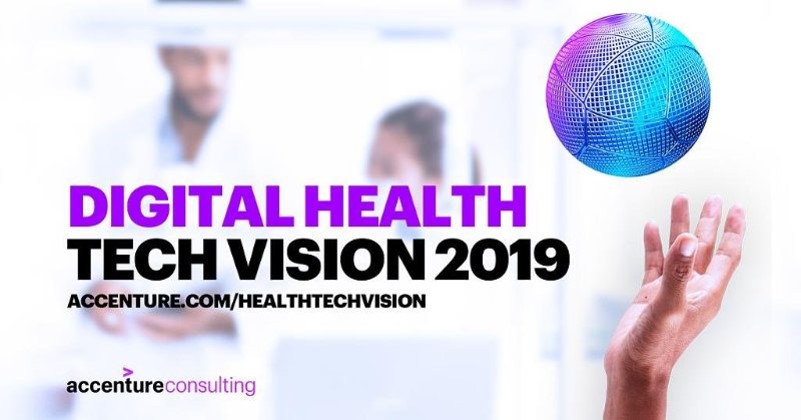
Social, mobile, analytics and the cloud now underpin the health care industry. We’ve been SMAC’ed, and Accenture’s Digital Health Tech Vision 2019 believes we’re in a post-digital era ripe with opportunity. Five trends comprise the Vision: DARQ Power, the acronym for Distributed ledger technology, Artificial intelligence (AI), extended Reality, and Quantum computing. Adopting these applications can help health care reduce costs, drive labor efficiency and support people-centered design and experience. Get to Know Me is the use of technology to develop and deepen relationships with people. As an example of this trend, Accenture points to Mindstrong which leverages AI and
Isn’t It Eyeconic? Vision Care in the Evolving Health Care Ecosystem
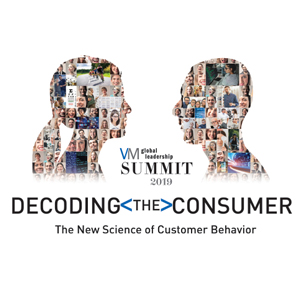
The vision/optical industry is one piece of the health/care ecosystem, but the segment has not been as directly impacted by patients’ new consumer muscles until just about now. It feels like the vision industry is at an inflection point at this moment, I intuited during yesterday’s convening of Decoding the Consumer: The new science of customer behavior, the theme of the 13th annual global leadership summit hosted by Vision Monday, a program of Jobson Medical Information which is part of the WebMD family. I was grateful to have an opportunity to share my views with attendees on the vision patient as
Can AI Make Healthcare Human Again? Dr. Topol Says “Yes”
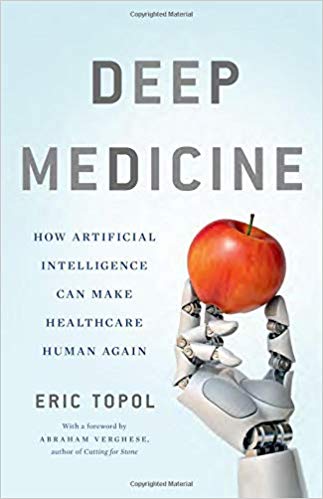
“The Fourth Industrial Age,” Dr. Abraham Verghese writes, “has great potential to help, but also to harm, to exaggerate the profound gap that already exists between those who have much and those who have less each passing year.” Dr. Verghese asserts this in his forward to Deep Medicine, Dr. Eric Topol’s latest work which explores the promise of artificial intelligence (AI), Big Data, and robotics — three legs of the Fourth Industrial Age stool. [If you don’t know the work of Dr. Verghese, and since you’re reading the Health Populi blog, you must get to know Dr. V now. Your
Deep Human Interactions: The Antidote To More AI In Health Care – Learning From Philips’ CEO At HIMSS19
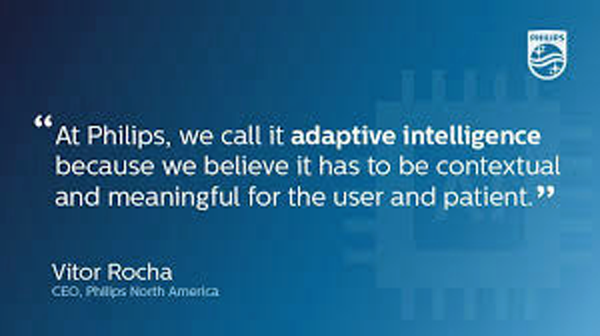
“The promise of AI is undeniable…could AI help clinicians deliver better and more humanistic care?” This question is asked and answered in a JAMA viewpoint published January 1/8 2019 titled, Humanizing Artificial Intelligence. This theme motivated a conversation held over a dinner convened by Philips hosted by Frans Van Houten this week at HIMSS19. To provide context Geoff Colvin, Fortune‘s Senior Editor, first talked about taking friction out of industries, as Lyft and Uber have done in the transport sector. “Taking friction out of industries challenges and changes business models,” Geoff noted. With Uber’s IPO valuation approaching $100 billion, I’d say that’s
Calling Out Health Equity on Martin Luther King Day 2019
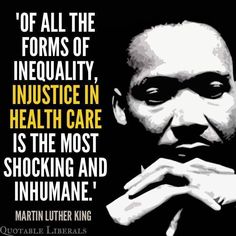
On this weekend as we appreciate the legacy of Martin Luther King, Jr., I post a photo of him in my hometown of Detroit in 1963, giving a preliminary version of the “I Have a Dream” speech he would deliver two months later in Washington, DC. Wisdom from the speech: “But now more than ever before, America is forced to grapple with this problem, for the shape of the world today does not afford us the luxury of an anemic democracy. The price that this nation must pay for the continued oppression and exploitation of the Negro or any other
Shelly Palmer De-Hypes CES 2019 & Has Lessons for Health/Care
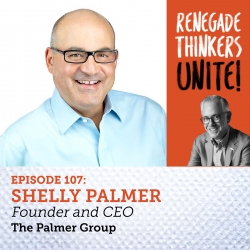
I had the pleasure once again of attending Shelly Palmer’s annual kick-off breakfast where he level-sets our expectations for CES two hours before the tech halls open. Shelly is a consumer tech expert and leads the Palmer Group; comments on Fox 5 in NYC, CNN, and CNBC; writes a weekly column in Advertising Age; composes music; and he’s a Renaissance Man who’s a generous sharer of knowledge with a great sense of humor and humanity. Shelly is one of my trusted touchpoints for all-things-consumer-tech. His message at the start of #CES2019: this year, the show is about connectivity and partnership.
The Venture Valkyrie’s Next AdVenture

Investor, advisor, operator, podcaster, blogger, speaker, Board member, mentor, mother, wife, volunteer. Take inventory of the many hats of Lisa Suennen, aka the Venture Valkyrie, and you understand why I see her as the Renaissance Woman of Healthcare. Ron Popeil couldn’t incorporate this many features into a contraption – yes, she slices and dices healthcare and technology, places bets on the best of them, and she deploys a whole lot more tools in her Mary Poppins-rich toolbox. Two months ago, Lisa announced she was leaving GE Ventures, where she was Senior Managing Director, to do something new. This week, she
Koen Kas, the Gardener of Health Tech Delights
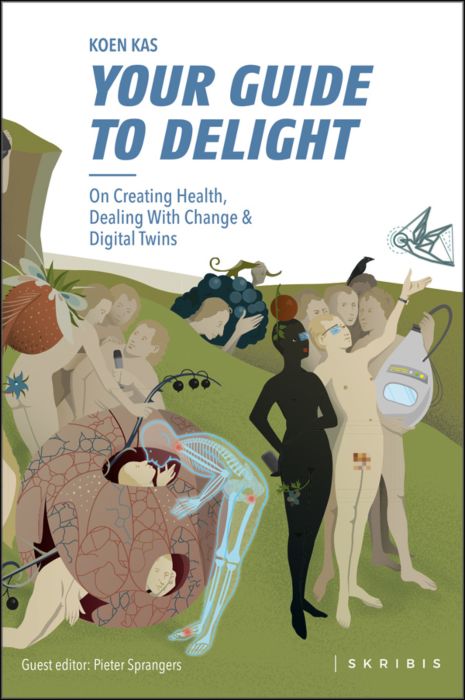
The future of healthcare is not about being sick, Prof. Dr. Koen Kas believes. Having spent many years in life sciences in both research and as an entrepreneur, Koen now knows that getting and staying healthy isn’t about just developing medicines and med-tech: optimally, health requires a tincture of delight, Koen advises in his breakthrough, innovative book, Your Guide to Delight. Healthcare must go beyond traditional user-centered design, Koen’s experience has shown, and aspire toward design-to-delight. The concept of “delight” in healthcare, such as we experience in hospitality, grocery stores, and entertainment, is elusive. I’ve observed this, too, in my
Retail Tomorrow, Today: A Smart Grocery Cart and Digital Samples For Paleo-Eating Moms

In our Amazon-Primed world, the future of retail is not ten years from now; it’s “tomorrow.” So GMDC, the association of retailers and brands who supply them, has formed a program called Retail Tomorrow to turbocharge the supply side with consumers who are already demanding convenience, immediate (or “soon”) gratification, and health where she/he “is.” That’s personalization, and that’s where retail health can and is making a difference in Everyday Peoples’ lives. In our DIY culture, we’re pumping our own petrol, making our own airline and hospitality reservations (from Expedia to Airbnb), trading stocks online, and cooking at home enabled by
Disruption Is Healthcare’s New Normal
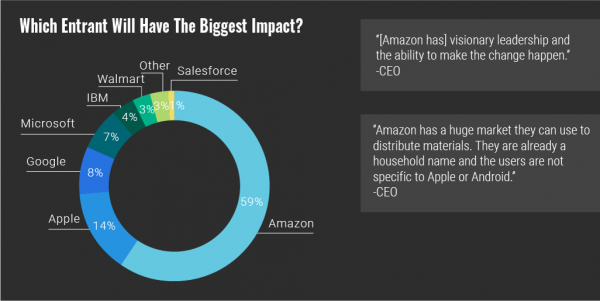
Googling the words “disruption” and “healthcare” today yielded 33.8 million responses, starting with “Riding the Disruption Wave in Healthcare” from Bain in Forbes, Accenture’s essay on “Big Bang Disruption in Healthcare,” and, “A Cry for Encouraging Disruption” in the New England Journal of Medicine Catalyst. This last article responded to the question, “Can we successfully deliver better quality care for patients at a lower cost?” asked by François de Brantes, Executive Director of the Health Care Incentives Improvement Institute. “Disruption” as a noun and an elephant in our room has been with us in healthcare since the September/October 2000 issue of
Employers Take on Health Activism, Embracing Behavioral Health, Virtual Care, AI, and Transparency
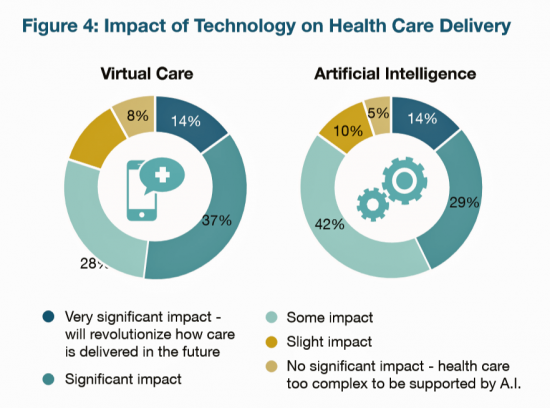
More U.S. employers are growing activist roles as stakeholders in the healthcare system, according to the 2019 Large Employers Health Care Strategy and Plan Design Survey from the National Business Group on Health (NBGH). Consider the Amazon-Berkshire Hathaway-JPMorgan Chase link up between Jeff Bezos, Warren Buffet, and Jamie Dimon, as the symbol of such employer-health activism. The NBGH report is based on survey results collected from 170 large employers representing 13 million workers and 19 million covered lives (families/dependents). This annual survey is one of the most influential such reports released each year, providing a current snapshot of large employers’ views
If Data Is The New Oil in Healthcare, Will It Be Safe to Drink? The Accenture Digital Health Tech Vision 2018
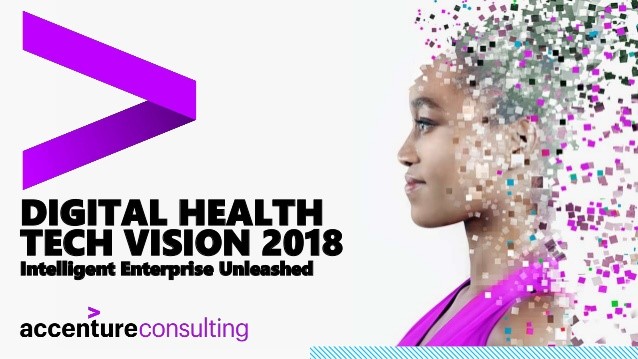
With the vast majority of patients’ medical records now digitized in electronic health records systems, the opportunities to mine, learn from, and act on the findings are promising for U.S. healthcare. More data is moving into internet clouds every day, from healthcare encounters with clinicians and inpatient hospital stays to prescribed medicines, retail receipts for over-the-counter remedies, wearable technologies, credit card swipes for products and services, and GPS check-ins. That’s a treasure trove of digital footprints that can tell a lot about us as patients, either in real-time or via prediction. But can we nudge stakeholders in health and healthcare
Design, Empathy and Ethics Come to Healthcare: HXD

Design-thinking has come to health/care, finally, and Amy Cueva has been beating this drum for a very long time. I’m delighted to be in her collegial circle, speaking at the conference about the evolving healthcare consumer who’s financially strapped, stressed-out, and Amazon Primed for customer service. I’m blogging live while attending HXD 2018 in Cambridge, MA, the health/care design conference convened by Mad*Pow, 26th and 27th June 2018. Today was Day 1 and I want to recap my learnings and share with you. Amy, Founder and Chief Experience Office of Mad*Pow, kicked off the conference with context-setting and inspiration. Design
Personalized Medicine: Consumer Concerns About Coverage, Affordability and Privacy
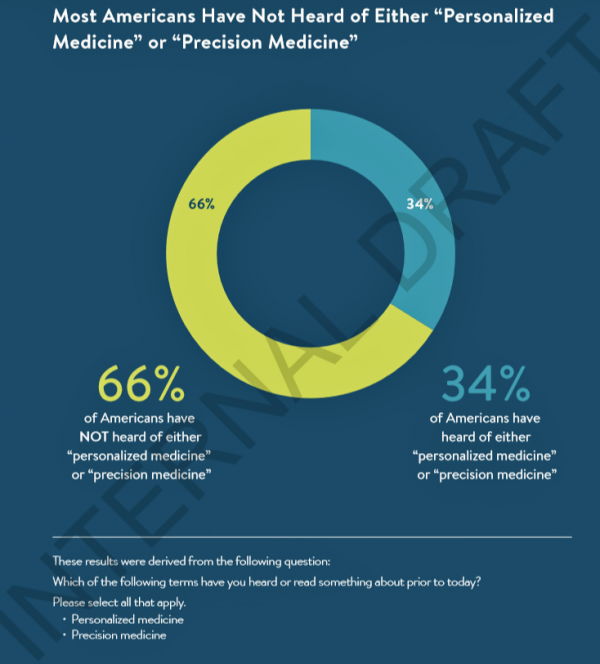
Two in 3 Americans haven’t heard the phrases “personalized medicine” or “precision medicine.” When the concept of therapies tailored to individual patients is explained, most people like the idea of diagnostic tools that can identify biological markers and marry to personal medical records data to help determine medical treatments that best fit them. This picture of U.S. consumers’ views on personalized medicine comes from a survey conducted for PMC, the Personalized Medicine Coalition, and GenomeWeb, published in May 2018. The poll results are published in Public Perspectives on Personalized Medicine, with the top-line finding that life science industry innovators must
How to Make Healthcare More Intelligent and Trustworthy: Accenture’s Digital Health Tech Vision 2018

“Do no harm” has been the professional and ethical mantra of physicians since the Hippocratic Oath was first uttered by medical students. The origins of that three-word objective probably came out of Hippocrates’ Corpus, which included a few additional words: “to do good or to do no harm.” The proliferation and evolution of digital technologies in health care have the potential to do good or harm, depending on their application. Doing good and abstaining from doing harm can engender trust between patients, providers, and other stakeholders in health. Trust has become a key currency in provider/patient/supplier relationships: 94% of health executives
#Engage4Health: How Patients Are Morphing Into Healthcare Consumers, for #HIMSS18
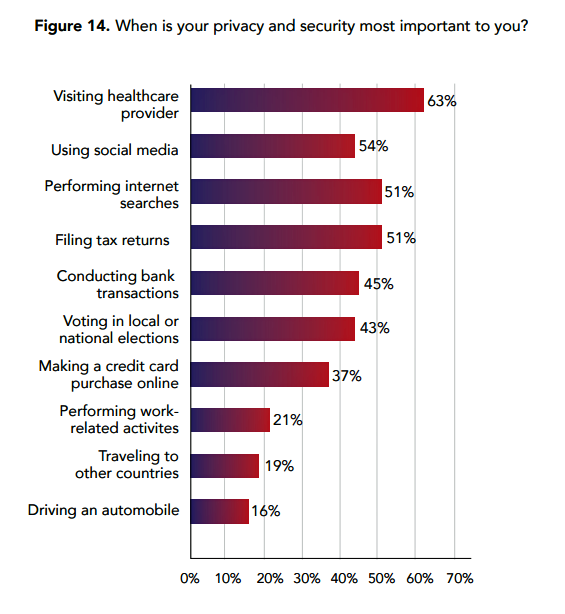
This blog appears today as part of a #HIMSS18 primer series for attendees, and the industry at large, to discuss major health IT issues that will help move health and healthcare delivery forward in 2018 – and beyond. I’m grateful to HIMSS to be one of 20 Social Media Ambassadors appointed for this year’s conference, which convenes in Las Vegas at the Sands Expo Center from March 5 to 9th, 2018. Prioritizing the patient-as-consumer through my health economic lens, the biggest priorities will be: Engaging patients in self-care and driving health and health plan literacy to better manage constrained access
Healthy Living in Digital Times at CES 2018

Connecting Life’s Dots, the organization Living in Digital Times partners with CES to deliver conference content during the show. At CES 2018, LIDT is connecting a lot of dots to help make health streamline into daily living. Robin Raskin, founder, kicked off LIDT’s press conference setting the context for how technology is changing lifestyles. Her Holy Grail is to help make tech fun for everybody, inclusive for everybody, and loved by everybody, she enthused. LIDT has been a presence at CES for many years, conceiving the contest the Last Gadget Standing, hosting tech-fashion shows with robots, and supporting a young innovators
Leveraging the Essential Data of Life: Health 2.0 – Day 1 Learnings
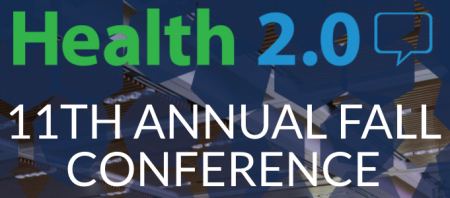
The future of effective and efficient healthcare will be underpinned by artful combinations of both digital technologies and “analog humans,” if the first day of the Health 2.0 Conference is a good predictor. Big thoughts about a decentralized future in healthcare kicked off Day 1 of the 11th annual Health 2.0 Conference in Santa Clara, CA. The co-founders of Health 2.0 (H20), Matthew Holt and Indu Subaiya, explained the five drivers of the tech-enabled health future. 1. The new interoperability, underpinned by FHIR standards and blockchain. “FHIR” stands for fast healthcare interoperability resources, which are informatics standards that enable data
Envisioning Healthcare Innovation and Value with Microsoft
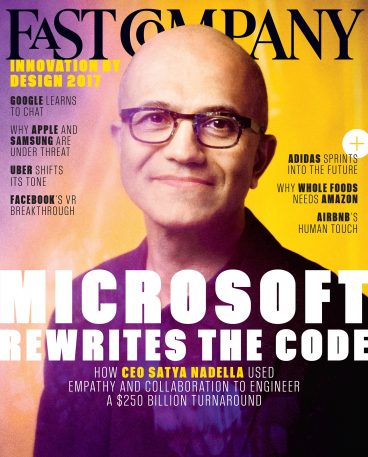
Fast Company’s October 2017 issue leads with a cover story featuring Microsoft’s CEO Satya Nadella, with the title, “Microsoft Rewrites the Code.” The issue of Fast.Co is devoted to the theme of innovation by design, and the 8-page story on the company emphasizes the themes of empathy and collaboration in re-imagining the organization. I lead with this because I’m now in Orlando preparing to participate in Microsoft’s annual meeting called Envision. This conference brings together the company’s clients from around the world, representing major industry segments. I’m grateful to be invited to participate in the first of six sessions devoted
Cost and Personalization Are Key For Health Consumers Who Shop for Health Plans
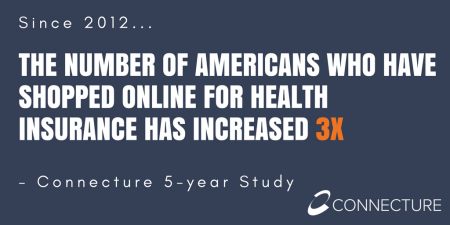
Between 2012 and 2017, the number of US consumers who shopped online for health insurance grew by three times, from 14% to 42%, according to a survey from Connecture. Cost first, then “keeping my doctor,” are the two top considerations when shopping for health insurance. 71% of consumers would consider switching their doctor(s) to save on plan costs. Beyond clinician cost, health plans shoppers are also concerned with prescription drug costs in supporting their decisions. 80% of consumers would be willing to talk with their doctors about prescription drug alternatives, looking for a balance between convenience
Weaving Accenture’s Five Digital Health Technology Trends for 2017
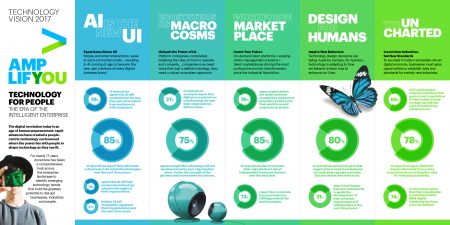
Technology should serve people, and Accenture has identified five major key trends that, together, could forge a person-centered, -friendly, -empowering healthcare system. This is Accenture’s Digital Health Technology Vision for 2017. “Should” and “could” are the important adverbs here, because if tech doesn’t deliver, driving efficiency and effectiveness, personalizing medical treatments, and inspiring people to become more health literate and health-engaging, then tech is just a Field of Dreams being built and available, with no people taking advantage of the potential benefits. The five new-new tech trends are: AI is the new UI, where healthcare experience is everything Ecosystem power
Artificial Intelligence, AI, Is Becoming the New Operating System in Health – Accenture
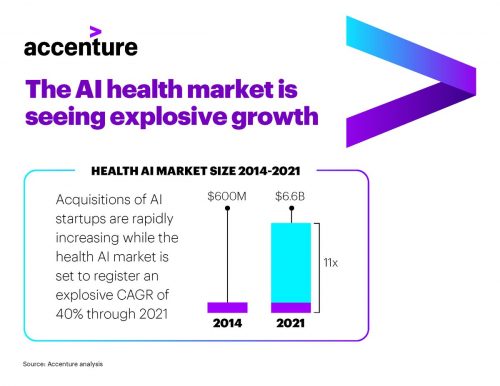
Artificial Intelligence, AI, can help drive the Triple Aim in healthcare, reducing cost, improving quality, and expanding access, according to Artificial Intelligence: Healthcare’s New Nervous System from Accenture. Acquisitions of AI developers in health will be fast-paced, growing at a compound annual growth rate of 40% – “explosive” in the word of Accenture – moving from $600 mm in 2014 to $6.6 billion in 2021. What these AI startups will do is to enable machines to sense, comprehend, act and learn, Accenture foresees, to augment administrative and clinical tasks which could free up healthcare labor (say, doctors, other clinicians, and accountants)
Helping People On A Path to Better Health with CVS @Retail
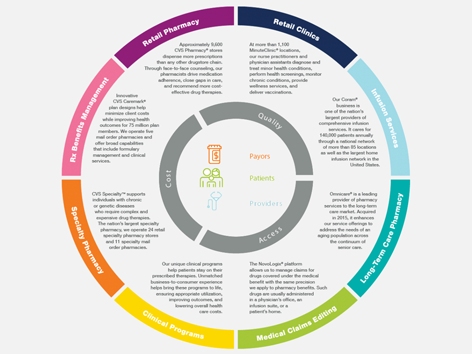
“Helping people on their path to better health” is the mission-mantra of CVS Health. Re-branded from its previous identity as CVS/pharmacy, the organization convened a Health Innovation Summit with its vendor partners whose products fill the front-of-store shelves to empower, inspire and support consumers to manage health and wellness for themselves and their families. I was grateful for the opportunity to provide the first talk for the day, setting the context for the evolving retail health/care landscape with the consumer at the center. The consumer is, at any point in a 24-hour day: a person wearing many hats (a worker,
Digital Healthcare At the Inflection Point, Via Mary Meeker
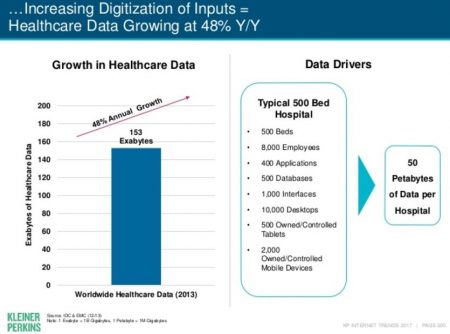
Healthcare is at a digital inflection point, asserts Internet Trends 2017 – Code Conference, by the iconic Mary Meeker of Kleiner Perkins. Published May 31, 2017, few tech-focused reports have the gravitas or generate the readership that this report does. I’m one of Meeker’s perennial readers, covering this report through my health/care lens here on Health Populi for several years (links to previous posts below). Of the report’s 355 pages, 22 are devoted to healthcare (pages 288-319), a section curated by Noah Kaufman of KP. This section of the report assembles data from a range of publicly available sources,
Expecting Alexa and Roomba for Health: Emerging AI and Robotics Trends for Healthcare via PwC
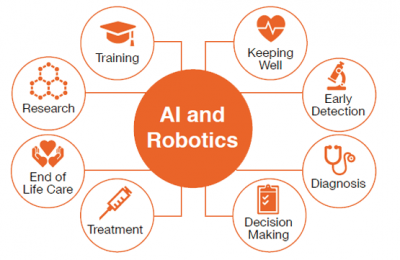
“What doctor?” asks the title of a PwC report on the emergence of artificial intelligence (AI) and robotics in healthcare. AI and robot technology are penetrating all aspects of the macroeconomy, and they’ve begun to re-shape the health economy, as well. Underneath PwC’s titular question are two lenses: the role of the AI/robot doctor vis-a-vis the role of the human doctor. PwC identifies eight areas that AI and robotics will impact in healthcare, shown in the first diagram: Decision making Diagnosis Early detection End of life care Keeping well Research Training, and Treatment. For keeping well, AI and robotics can





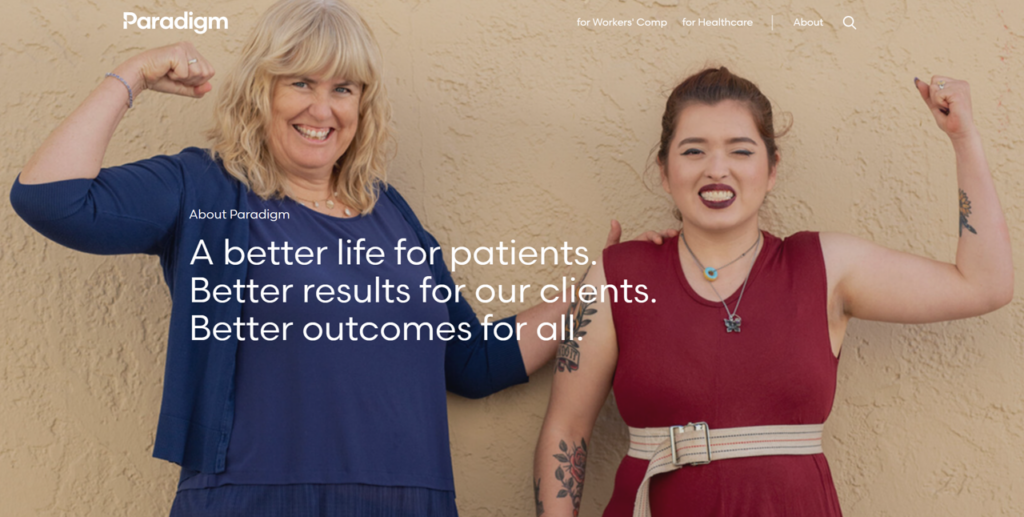 Jane will deliver the keynote address at the upcoming
Jane will deliver the keynote address at the upcoming 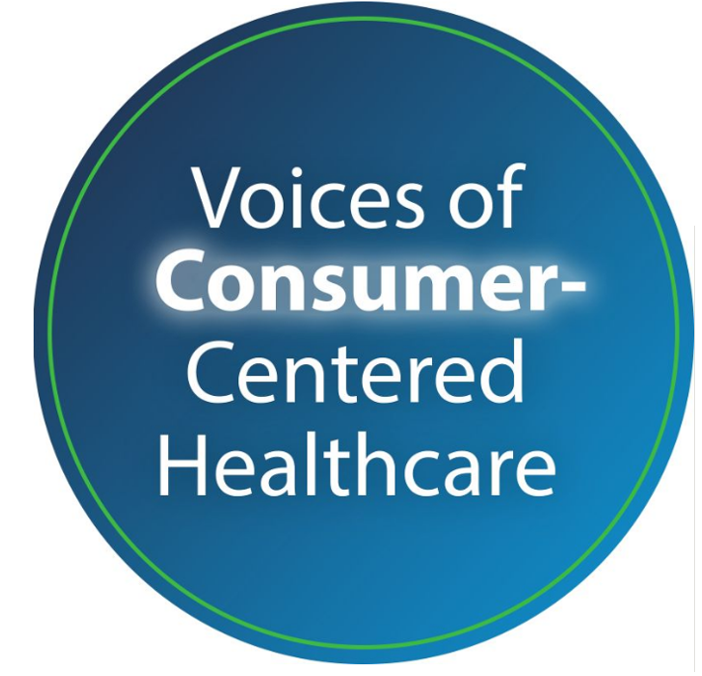 Thank you, Jared Johnson, for including me on the list of the
Thank you, Jared Johnson, for including me on the list of the  I am so grateful to Tom Lawry for asking me to pen the foreword for his book, Health Care Nation,
I am so grateful to Tom Lawry for asking me to pen the foreword for his book, Health Care Nation,